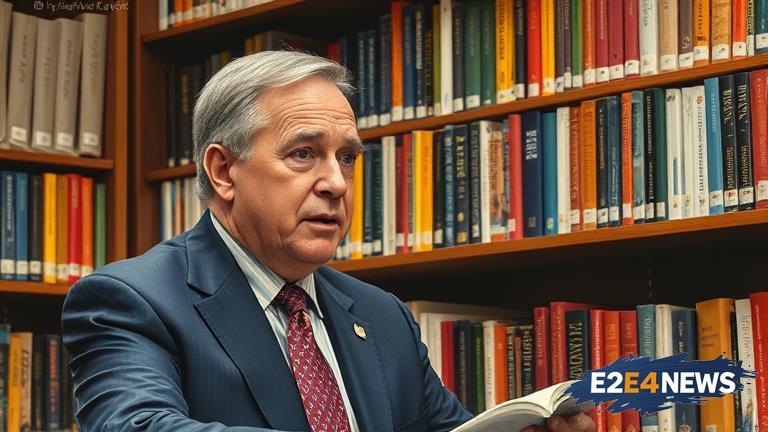Texas Governor Greg Abbott has sparked controversy by demanding the removal of certain books from school libraries across the state. The move has been met with criticism from educators, parents, and civil liberties groups, who argue that it amounts to censorship. Abbott’s order comes after a Republican state lawmaker, Representative Matt Krause, compiled a list of approximately 850 books that he deemed to be inappropriate for school-age children. The list includes works by renowned authors such as Margaret Atwood, John Green, and Toni Morrison, as well as books that address topics like racism, sexism, and LGBTQ+ issues. Many of the books on the list have been recognized for their literary merit and have won numerous awards. Despite this, Abbott has claimed that the books contain explicit content that is not suitable for children. The governor’s order has been criticized for its potential to stifle free speech and limit access to information for students. Educators have argued that the move will have a chilling effect on the ability of teachers to provide a well-rounded education. The American Civil Liberties Union (ACLU) has also weighed in on the issue, stating that the removal of books from school libraries is a form of censorship that violates the First Amendment. The organization has vowed to fight against the order and protect the rights of students to access information. The controversy has sparked a wider debate about the role of government in regulating what books are available in schools. Many have argued that the decision about what books to include in school libraries should be left to educators and parents, rather than politicians. The issue has also highlighted the importance of intellectual freedom and the need to protect access to information. In response to the criticism, Abbott’s office has claimed that the governor is simply trying to protect children from explicit content. However, many have questioned the motivations behind the order, suggesting that it is part of a larger effort to impose conservative values on the state’s education system. The controversy has also drawn attention to the broader issue of book banning in the United States. According to the American Library Association, there were over 700 attempts to ban or restrict access to books in schools and libraries across the country in 2020. The organization has reported that the majority of these attempts were motivated by political or ideological concerns. As the debate over book banning continues, many are left wondering what the implications will be for students and educators in Texas. Will the removal of books from school libraries have a negative impact on the quality of education in the state? Only time will tell. The controversy has sparked a national conversation about the importance of intellectual freedom and the need to protect access to information. It remains to be seen how the issue will be resolved, but one thing is clear: the debate over book banning in Texas is far from over. The state’s educators, parents, and students will be watching closely as the situation unfolds. In the meantime, many are speaking out against the order and advocating for the importance of intellectual freedom. The issue has also highlighted the need for greater transparency and accountability in the decision-making process surrounding book selection in schools. As the controversy continues to unfold, it is likely that the issue will be taken to court, with civil liberties groups and educators arguing that the order violates the First Amendment. The outcome of the case will have significant implications for the future of education in Texas and beyond. The debate over book banning in Texas is a complex and multifaceted issue, with no easy solutions. However, one thing is clear: the importance of protecting intellectual freedom and access to information cannot be overstated. As the situation continues to unfold, it is essential that educators, parents, and students remain vigilant and advocate for the importance of a well-rounded education.





